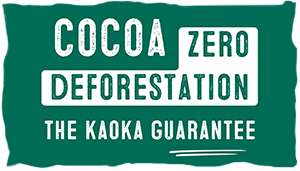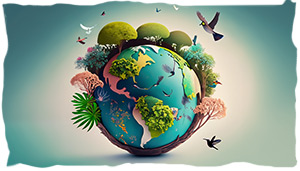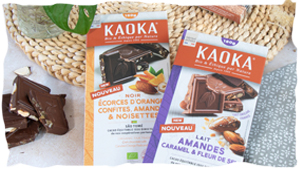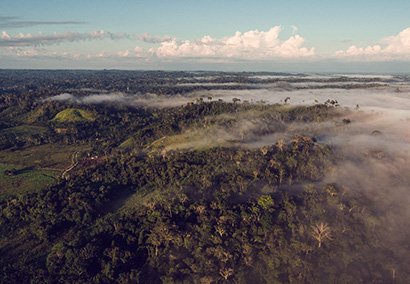Kaoka truly committed against deforestation
Today, forest preservation remains one of the most effective levers in the fight against climate change. As an early advocate of environmental issues, Kaoka has been working for several years against deforestation.
- Why can cocoa be a source of deforestation?
- Kaoka truly committed against deforestation
- How does Kaoka ensure that its cocoa chains are not responsible for deforestation?
Why can cocoa be a source of deforestation ?
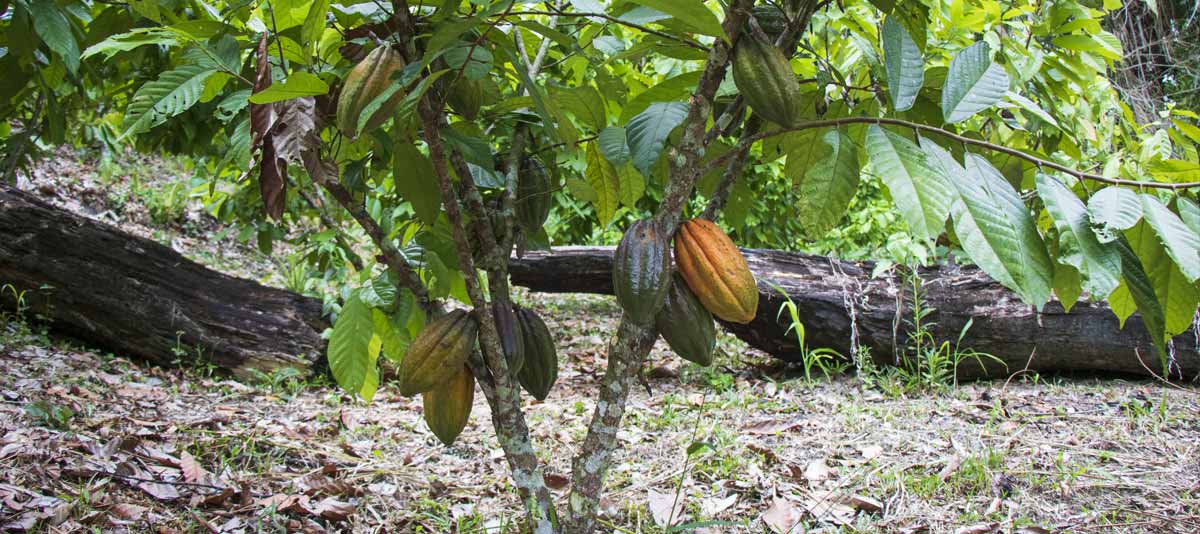
First of all, a little background: how can chocolate be a vector for deforestation?
The main causes of deforestation are mining, agriculture and forestry. Worldwide, livestock and agricultural production are responsible for around 80% of deforestation.
Like soya and palm oil, cocoa has been clearly identified as contributing to deforestation. And remember, cocoa is one of the main ingredients in chocolate.
Cocoa is affected by deforestation because it is grown in tropical areas and in countries where the forests were, until now, little protected. At the same time, the growing demand for chocolate in Western countries has encouraged the felling of forest plots for cocoa plantations.
It is estimated that the development of cocoa farming has led to the deforestation of around 2.5 million hectares since the early 1990s, in the 4 main cocoa-producing countries: Côte d’Ivoire, Ghana, Indonesia and Nigeria.
Source: Cocoa certification and the fight against deforestation – CIRAD February 2021
Cocoa and pioneer fronts
Like many other crops, cocoa farming has developed along pioneering front lines.

This phenomenon of pioneering conquest of tropical forests is unfortunately exacerbated by the falling productivity of existing plantations and the resulting low remuneration of growers.
This is a vicious circle, because once the forest is felled, the soil on this bare land rapidly becomes impoverished. The soil is a reserve of resources and nutrients that is essential for trees and their development. In poor soil, the trees health and growing are impacted and the plantation becomes less productive. Without sufficient harvests, growers are forced to extend their cultivation areas into forested areas. And so on, the forest is degraded or felled until it disappears completely.
The introduction of a European regulation
Faced with the challenge of preserving forests in the fight against climate change, the European Union has adopted a new regulatory text which, from January 2025, will ban the sale on the European market of products (cocoa, coffee, palm, wood, beef, soya, rubber) which have caused the deforestation of forests after 31 December 2020.
Kaoka, the chocolate truly committed against deforestation
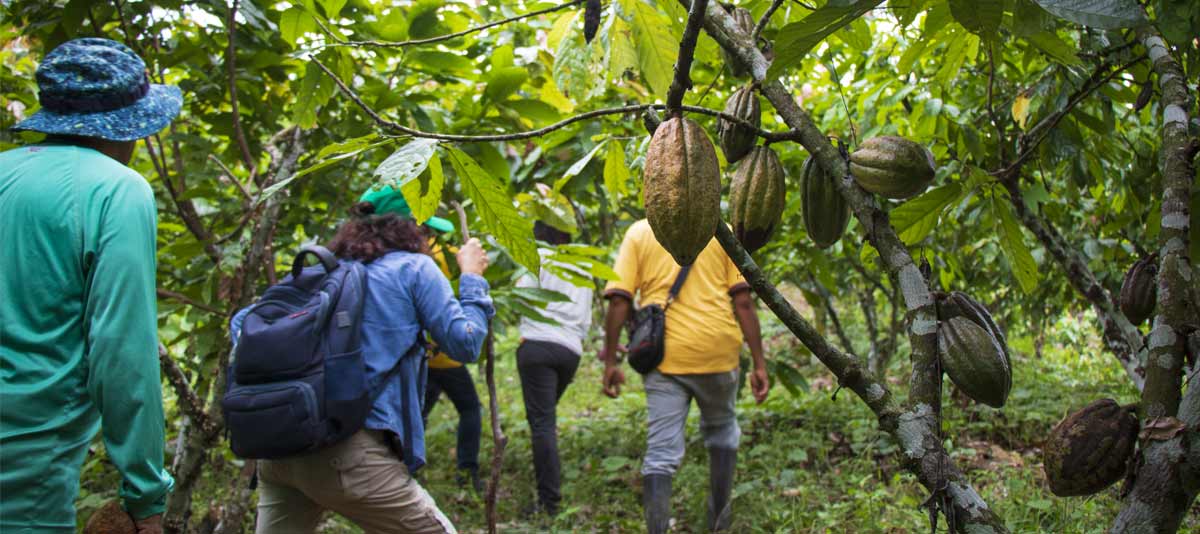
At Kaoka, we’ve been taking the issue of deforestation very seriously for many years.
We know that behind the phenomenon of deforestation lies an economic necessity: the forests are cut down to enable people to grow crops and thus earn a living.
Thanks to our integrated cocoa supply chain structure, our proximity to producers means that we are aware of the problems in producing countries much more quickly and much earlier. What sets us apart is the strong link we have with producer cooperatives. We have been working exclusively with them for over 20 years. By integrating the cocoa programs into the heart of our company strategy, we are able to work together daily and set up long-term projects alongside them.
We are convinced that it is essential to support producers in sustaining their plantations and harvests in order to combat deforestation.
Aware of the importance of producer income, our support includes a number of strong guarantees:
- Buying 100% of the cocoa harvest each year to ensure a sustainable outlet,
- The purchase price of cocoa is always higher than the market price,
- An increase in productivity in existing plots thanks to our support in restoring plantations (provision of cocoa plants selected for their productivity, provision of plants for food crops, technical training, monitoring by our teams, etc).
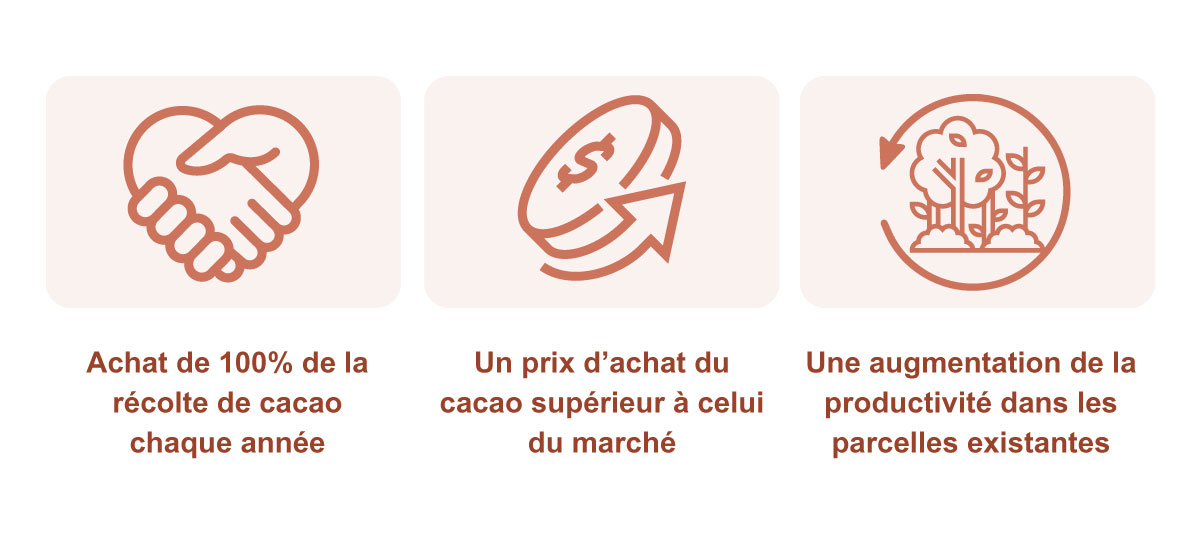
An 8.97 million euro project for zero deforestation cocoa
In parallel with this global support, Kaoka is carrying out other projects to introduce sustainable cocoa-growing methods to preserve biodiversity.
In 2021, we signed a public-private partnership for the conservation and regeneration of ecosystems, the protection of biodiversity and the promotion of truly sustainable agricultural practices within cocoa sectors in Peru, Colombia and Ecuador.
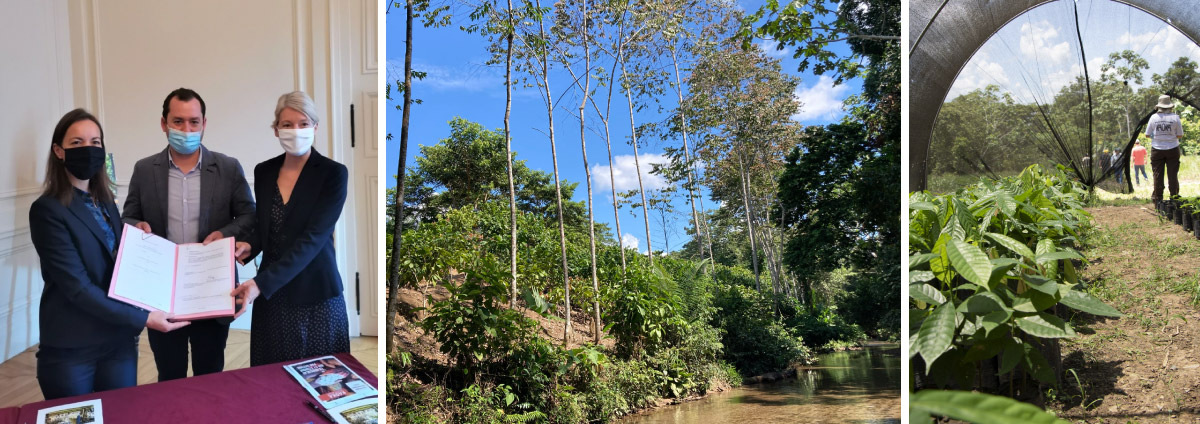
With the support of the French Global Environment Facility and agroecology research bodies, Kaoka aims to demonstrate the effectiveness of its agroforestry cultivation model and its ability to be replicated.
➤ For more information on the 8,97M€ project for a zero deforestation cocoa.
How does Kaoka ensure that its cocoa chains are not responsible for deforestation?
To guarantee that the cocoa in our chocolates is not responsible for deforestation, Kaoka has drawn up a stringent set of standards. Of course, these standards have been co-constructed with our producer organisations partners, with the support of agro-ecology research bodies. This document constitutes a system of guarantees which enables us to control various points throughout the cocoa production chain.
-
Controlling traceability
Gathering information is a prerequisite for implementing a “zero deforestation” approach. In our integrated cocoa programs, all our producer partners are clearly identified. This identification is essential for the steps that follow.

-
Risk analysis
Each country or production area has a different context, with its own cultivation practices. At Kaoka, with the support of agroecology researchers, we have studied the risks in all the areas in which we operate.
-
An essential tool: satellite images
To ensure that plantations do not expand to the detriment of forest areas, we have chosen to use satellite images.
First of all, the perimeters of the edges of our grower partners’ plots were delimited by GPS points and digitised.
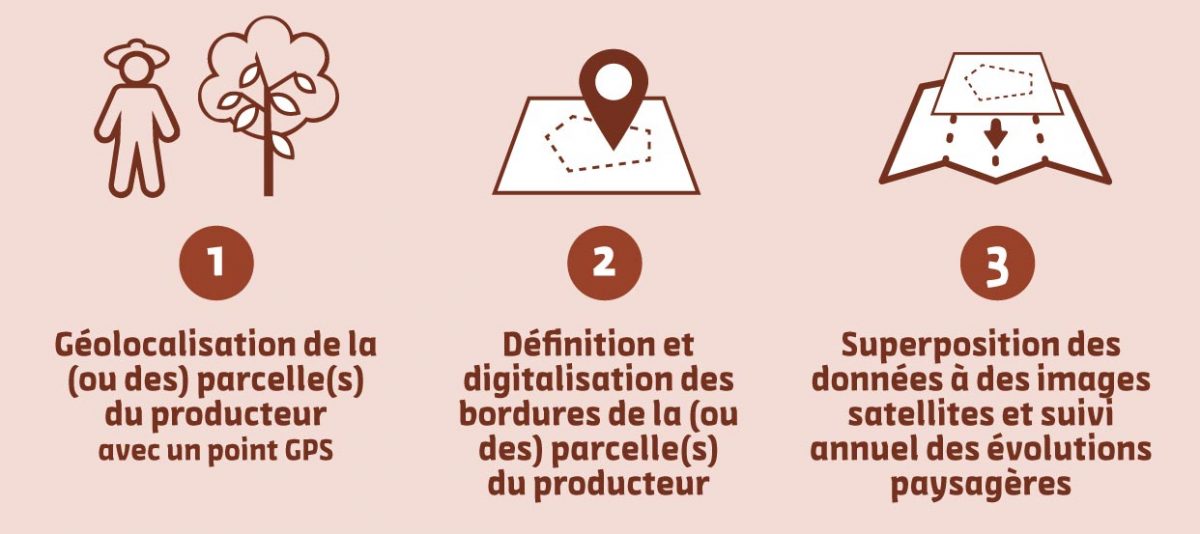
This information is then superimposed on satellite images highlighting forest areas. By analysing these images over time, we can check that plantations are not expanding at the expense of rainforests.
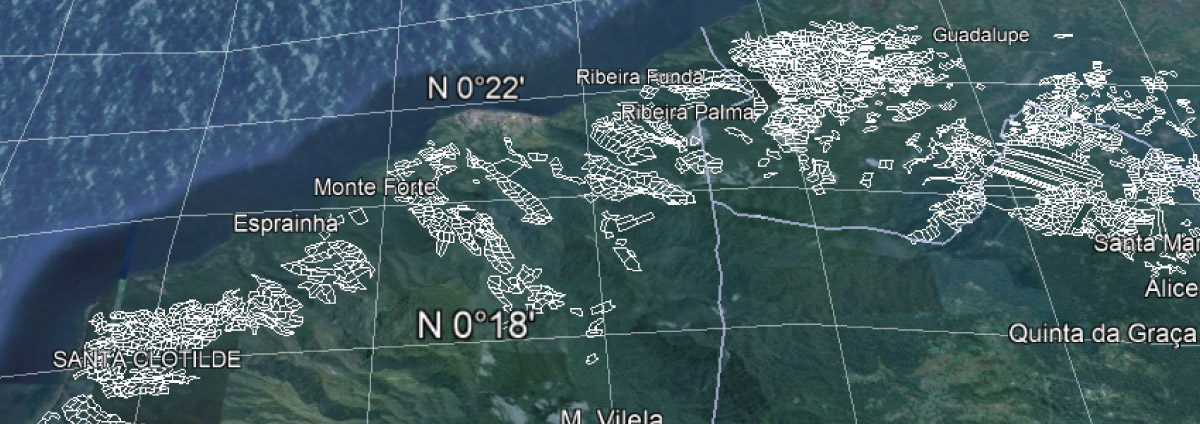
-
Implementation of mitigation measures
The small producers, we work with, own their land, whether agricultural or forestry. They therefore have the right to develop them as they see fit, in compliance with the local regulations in force, of course. That’s why raising awareness and training producers are at the heart of our ‘zero deforestation’ approach.
Thanks to agro-ecology researchers, we have been able to define the priority areas for conservation. Our ambition is to sign conservation agreements with producers. We are currently working on the offsets to these agreements. The aim of these management plans is to protect and enhance local forests while limiting the expansion of agricultural land.
Our projects to support agroforestry, restore soil fertility and clear deforested areas are other ways of ensuring that cocoa is grown in a way that preserves the forest.
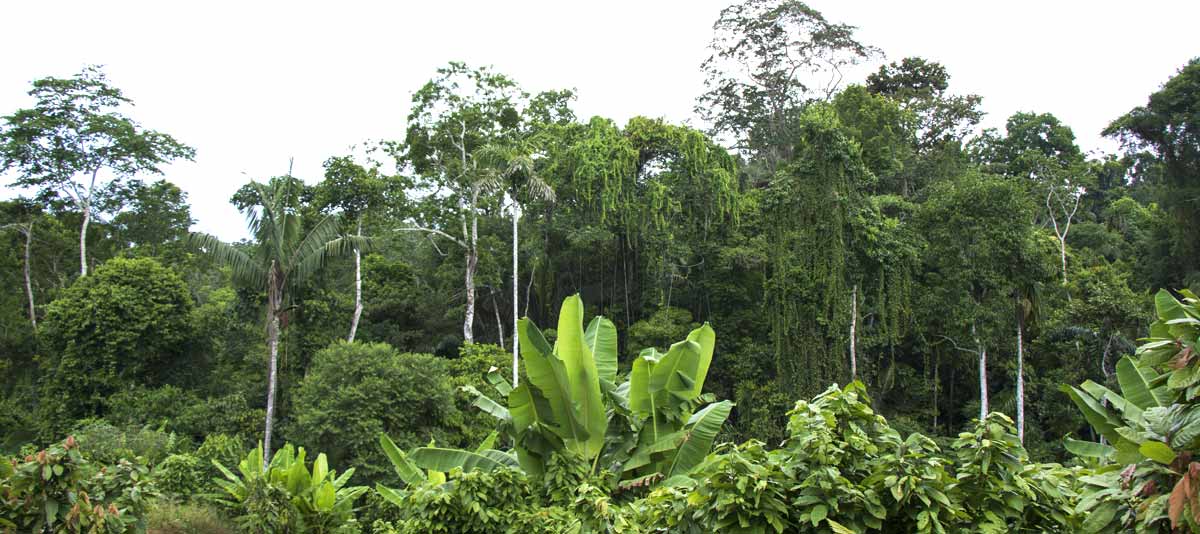
-
A conscious decision to reject mass balance in favour of segregated production
All Kaoka® chocolates are made in a segregated process: in other words, our fair trade ingredients are 100% physically traceable and are not mixed with non-fair trade cocoa. This gives our customers and consumers the guarantee that the cocoa in their Kaoka bars is not contributing to deforestation.
We hope this article has enabled you to find out a little more about the deforestation linked to cocoa production and the various actions taken by Kaoka to ensure that our chocolate is not responsible for deforestation. We can only encourage you to be vigilant with regard to the information communicated by brands on this subject.
We would be delighted to answer any questions you may have. You can contact us using our contact form.
